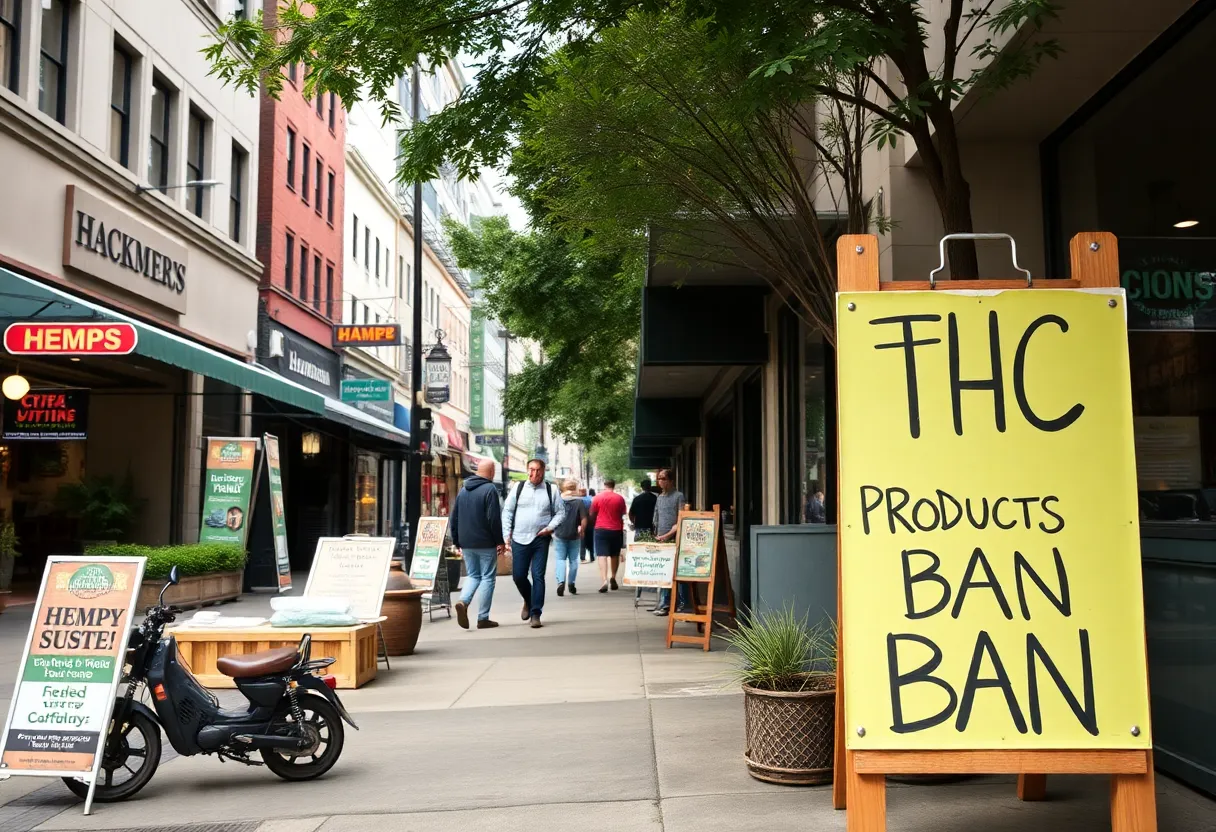

Impact of THC Ban on Houston Hemp Industry
The Texas Senate has passed Senate Bill 3, banning consumable hemp products with THC, creating uncertainty for Houston’s thriving hemp sector. Local businesses, like Bayou City Hemp Co., are at risk, potentially relocating if the ban is implemented. With economic impacts projected to hit $27 million by 2027, the future of the hemp industry hangs in the balance amid concerns over public safety and unregulated products.
In the heart of Houston, a wave of uncertainty is sweeping through the small business landscape, ignited by the Texas Senate’s recent approval of Senate Bill 3. This legislation brings with it a ban on all consumable hemp products that contain tetrahydrocannabinol (THC), but it does allow for products that feature cannabidiol (CBD) or cannabigerol (CBG). While this move is intended to tackle public safety concerns, it stands to significantly disrupt the livelihood of countless business owners operating in the thriving hemp sector.
Among the businesses that could see the most impact is Bayou City Hemp Co.. This company had plans to expand its operations to build what would be the largest THC beverage facility in the nation, right in the suburbs of Houston. Now, with the sudden enactment of the new bill, those ambitious plans are under serious review. Bayou City Hemp Co. already sells its THC-infused beverages at popular retailers like H-E-B, Kroger, Walmart, Total Wine & More, and Spec’s, but if the ban goes through, they might seriously consider packing up and moving to more lenient states such as Florida.
The potential fallout is staggering with about 99 businesses currently licensed to sell consumable hemp products in Houston alone, and an even greater 410 businesses registered for retail hemp sales across the city. If these businesses suffer, the Texas general revenue fund could take a hit of roughly $27 million by 2027 due to decreased tax income. That’s a worrying number for small business owners who view these products as a vital source of income.
The reasoning behind this legislation lies in safety concerns regarding unregulated THC products. Following the legalization of hemp in the U.S. under the 2018 Farm Bill, numerous unregulated products emerged, prompting a call for tighter oversight. Leaders in the state government are emphasizing the need to protect public safety, particularly children, with the sharp rise in smoke shops selling such products—around 8,000 establishments have popped up throughout Texas recently.
However, not everyone is on board with the Senate’s strict ban. The Texas House is considering a different strategy, proposing House Bill 28, which aims for regulatory measures instead of an outright prohibition. This could pave the way for a middle ground that addresses safety while allowing businesses to continue operating in a legally regulated environment.
Interestingly, public opinion on cannabis legalization in Texas is quite nuanced. Recent surveys indicate that about 69% of residents are supportive of legalizing personal-use marijuana, while 55% are in favor of implementing regulations for THC products. This split in sentiment creates a complex backdrop for upcoming legislative discussions.
Those who oppose Senate Bill 3 assert that an outright ban could inadvertently bolster black market activities, damaging lawful businesses even further. There are calls for more targeted regulations instead of a sweeping prohibition, such as enforcing age restrictions and requiring child-resistant packaging. For many small business owners, the costs associated with obtaining licenses for consumable hemp products, which can run as high as $258, along with retail hemp registrations priced at $155, represent a significant investment, making this situation even more precarious.
The ramifications of decreased employment and reduced sales tax revenue could send shockwaves through local economies, raising alarms for communities that have come to rely heavily on the hemp industry to thrive.
As the new legislation moves closer to being finalized, the Texas Compassionate Use Program will remain untouched, still allowing for limited medical use of low-THC cannabis under set conditions. However, the broader implications of Senate Bill 3 cast a long shadow over Houston’s vibrant hemp sector, leading many to ponder the future of their small businesses and the livelihoods they support.
The future remains uncertain, but one thing stands out: the stakes are high, and the survival of the Texas hemp industry could hinge on advocates pushing for sensible regulations that allow businesses to flourish while ensuring public safety is not compromised.
News Summary The city of Austin is preparing for Economic Development Week, proclaimed by Governor…
News Summary McDonald's is set to hire up to 375,000 employees across the United States…
News Summary San Antonio is mourning the loss of Red McCombs, a legendary Texas entrepreneur…
News Summary The Alpine Group has inaugurated its first office outside of Washington, D.C., in…
News Summary Job Eliezer De La Torre of Round Rock has pleaded guilty to federal…
News Summary A shooting during a Juneteenth celebration in Round Rock resulted in two fatalities…